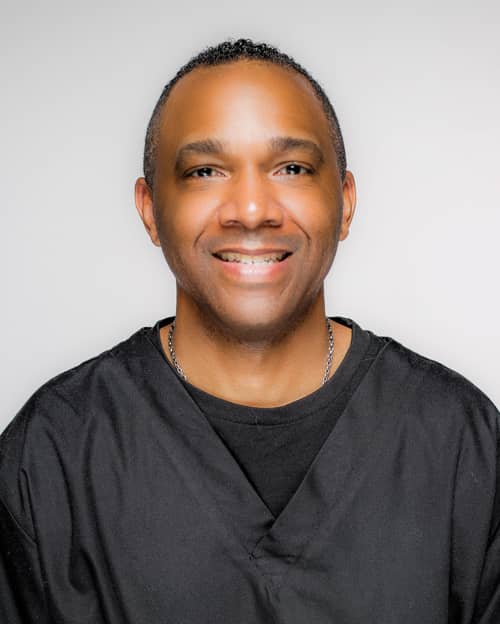Like many practices today, Heather Brown Orthodontics, Houston, is a busy and bustling operation. On an average day, the office sees 120 patients and their families walk through the door. Ensuring that everything runs as efficiently as possible is the main responsibility of Wallace Moore, head orthodontic assistant.
“Mostly what I do is make sure that the clinical area moves and operates smoothly. But, as anyone who works in the field knows, not every day is the same,” Moore explains. “Every day is a different challenge. Some days I spend most of my time fabricating a minor tooth movement appliance, while on other days I’ll focus on IT issues or making sure supplies are ordered and stocked.”
Moore is part of a staff of seven who work at the practice. As the head orthodontic assistant, he’s asked to wear a lot of proverbial hats while at work. His ability to switch gears quickly and efficiently is the result of an eclectic career path.
Moore first served in the United States Army for 6 years. While in the military, he worked as a platoon guide and a squad leader. “I was responsible for ensuring that everyone made it to formation on time, that uniforms were up to par, and that we were inspection-ready,” Moore recalls. “The types of organizational skills I learned and used in the Army transfer perfectly into what I do each day in the office.”
This November, Moore will celebrate his 14th anniversary with Heather Brown Orthodontics. His success at the practice comes after an interesting tour of dental professions.
After leaving the Army, Moore worked as an assistant for a general dentist. While in this role, he gained the fundamentals to seek out other career-minded opportunities. For a number of years, he worked alongside endodontists, oral surgeons, cosmetic dentists, and periodontists. “I was satisfied with what I was doing, but learning those types of specialties that go beyond dentistry is what really led me to orthodontics,” Moore notes. “I liked being able to see something from start to finish. We mold a smile, and I really enjoy watching the progression of the patient, and to see his or her satisfaction when the treatment meets expectations.”
While the gratification of his role has persisted for the last 14 years, Moore hasn’t let go of his constant desire to continue his education in the field of orthodontics. As he explains, he’s a consummate learner, and he takes many opportunities to translate and share his career curiosities with team members.
“Every other month or so, I host a team workshop so that our assistants can keep current with their skills,” Moore explains. “I do this so that we are operating on the same level and on the same page.”
The in-house workshops in which Moore spearheads touch on digital photography, manufacturing minor tooth movement appliances, and operating the intraoral scanner. “Sometimes these workshops are a one-on-one training session, or they may involve the entire crew,” he notes.
“My whole objective it to make sure we’re all doing the best job we know how. We have a great team, so that makes my job easy.”
As Moore explains, technology plays a substantial role in orthodontics today. And, throughout his tenure at the practice, that role has evolved tremendously. “When I first started, we had to take alginate impressions of patients to make retainers or appliances, now we have an intraoral scanner,” he notes. “The advancements in software have been incredible as well. It’s come a long way since when I started.”
Moore and his team rely on CS OrthoTrac practice management software from Carestream Dental to monitor patient flow throughout the busy office. “The software allows us to see where we are in the moment so that we can keep everything on track,” he explains. “We use this to ensure that our patient wait time is decreased. We do our best to stay on top of the wait time, because that really influences the patient experience. No one likes to wait.”
As head orthodontic assistant, Moore comes to work each day with a broad skill set that is the result of a well-rounded career. However, when asked what particular skills are needed to perform in his current role, he mentions something that can’t be taught in a textbook: empathy.
“We treat our patients like family, not just a treatment goal,” Moore adds. “A lot of patients come to us being self-conscious, and we get to learn about them, and build relationships with them; all while they go through a transformation, not only of their smile, but of their overall self-confidence. The patient treatment may be completed, but it’s a brand-new you that lasts a lifetime. That’s incredibly rewarding.” OP
Lori Sichtermann is a freelance writer for Orthodontic Products. She can be reached at [email protected].





